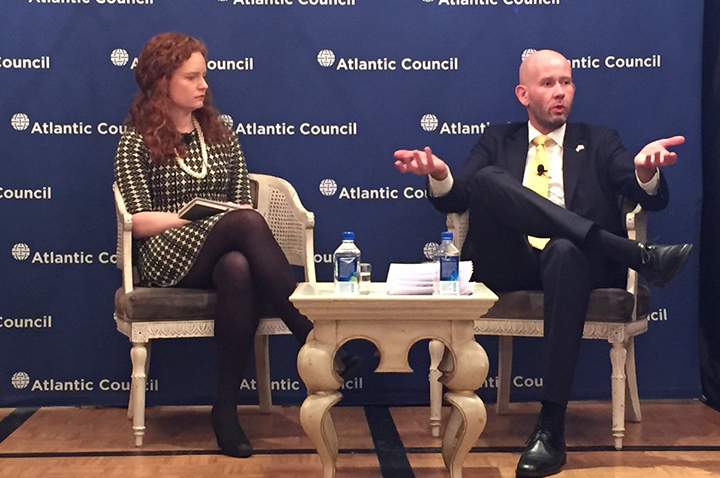 Universal access to affordable green energy is critical for meeting both global sustainable development and carbon-emission-reduction goals, Norway’s Minister of Petroleum and Energy, Tord Lien, said in Washington on February 25.
Universal access to affordable green energy is critical for meeting both global sustainable development and carbon-emission-reduction goals, Norway’s Minister of Petroleum and Energy, Tord Lien, said in Washington on February 25.
In order “to eliminate extreme poverty and reduce global social inequality, we have to build sustainable global energy systems,” said Lien. He spoke at an event hosted by the Atlantic Council. Annie Medaglia, Deputy Director of the Council’s Global Energy Center, moderated a discussion with the Minister.
Coming off of the Paris COP21 climate negotiations and the United Nations Sustainable Development Goals agenda meeting, Lien contended that “a consensus on both COP21 and the UN Sustainable Development Goals is not only important but also closely interrelated.”
The seventeen Sustainable Development Goals, or SDGs, put energy sustainability, infrastructure efficiency, and action on climate change at the forefront of improving economic development and closing socioeconomic gaps across the globe.
Energy-centric economies, like Norway, undoubtedly play a large part in the SDGs and energy conversations surrounding economic development.
Norway’s unique access to “High North” Arctic-based oil fields has made it a chief energy producer and exporter to Europe. In 2015, oil and natural gas exports amounted to 450 Norwegian Krone (approximately $52 billion) and met around twenty percent of the European Union’s gas demand for the year. Norway’s energy sector makes the country a primary actor in defining the energy sustainability space.
“Global sustainable development has to be supported by energy industries that are sustainable on a global level,” Lien said, noting that there are three equal pillars in discussing sustainability: environmental, economic, and social.
Lien said the social pillar of sustainability stands as the highest priority going forward. “Supporting high-level energy at an affordable price to an ever-growing population and making sure that this energy is secure in its supply” is critical and “too often forgotten when discussing sustainability needs,” he said.
The Minister said that the first priority and most effective “first step to [realize] a global sustainable energy system should be to reduce the use of coal.”
“Coal can easily be replaced by adopting clean natural gas” going forward, he added.
Even so, sustainability is only a part of the energy future equation. Only one-third of the High North’s gas fields have been used up, according to Lien. The remaining two-thirds of production must be operated in a “well-functioning, stable, and secure global energy market. Hopefully, in the future, we will see a fully integrated European [energy] market,” he added.
Norway has defined its energy sector as a leader in alternative fuel investments. Last year, the country sold off its coal-related investments in an attempt to refocus its main national energy company, Statoil, toward a natural gas future.
Natural gas adoption has already been taken up by major energy producers and consumers on the global market, including the United Kingdom, which, since November of 2015, has started to close all coal-based power stations in lieu of natural gas.
Even though energy-centric economies like Norway boast significant sovereign wealth fund accounts heralded from oil and gas profits, Lien recognizes that reducing carbon emissions is an immense challenge. “Coming out of Paris, the global community needs to be more focused on developing cost-effective solutions,” he said. Falling oil prices and global pressure to act on climate change drives adoption of new energy technology and economic diversification.
Norway’s High North will define Europe’s and to a certain extent, the world’s, ability to adopt energy sustainability practices. “When it comes to managing the resources in the Arctic, the region is defined by cooperation, not conflict,” Lien said. “Good governance is borne out of good resource management.”
Mitch Hulse is an intern at the Atlantic Council.
Image: Norway’s Minister of Petroleum and Energy, Tord Lien, spoke at an event hosted by the Atlantic Council’s Global Energy Center in Washington on February 25. Annie Medaglia, Deputy Director of the Center, moderated a discussion with the Minister. (Atlantic Council)
